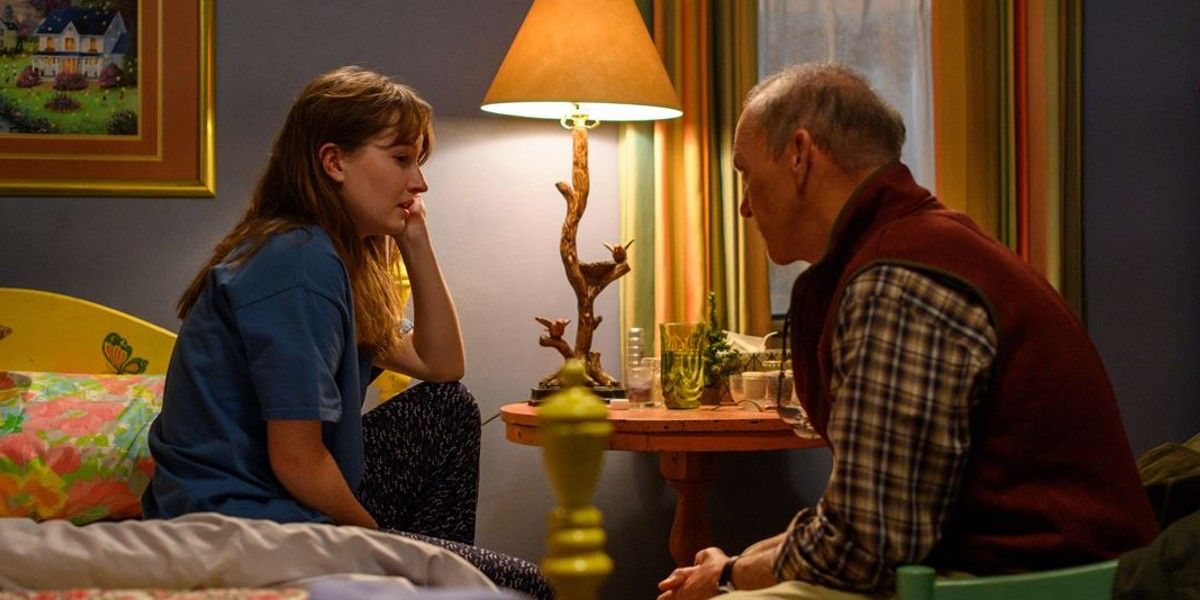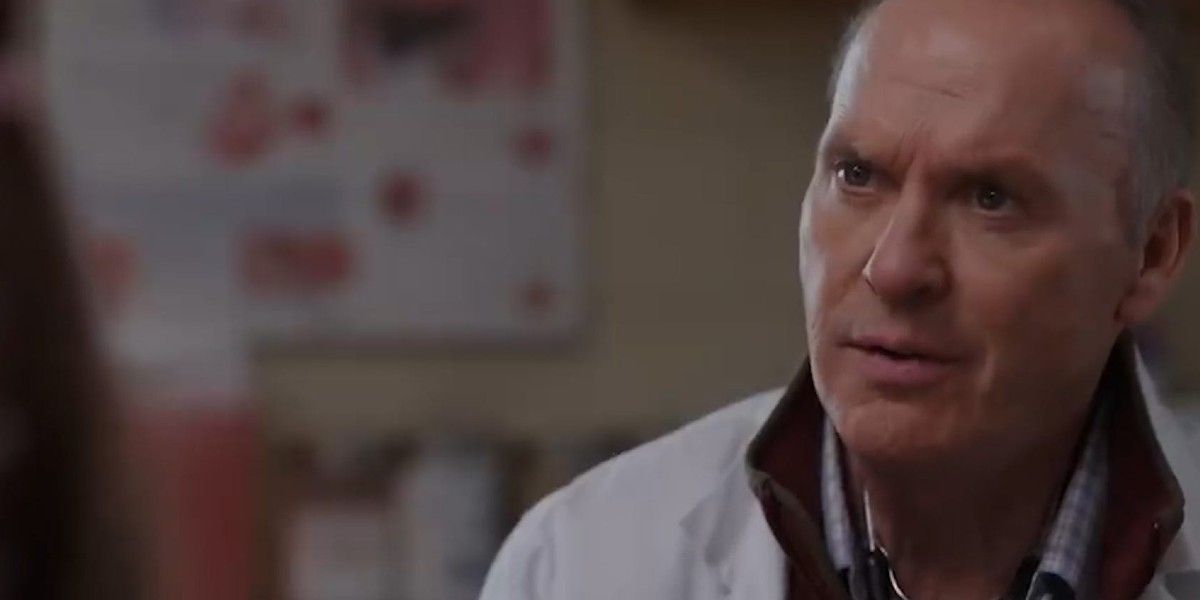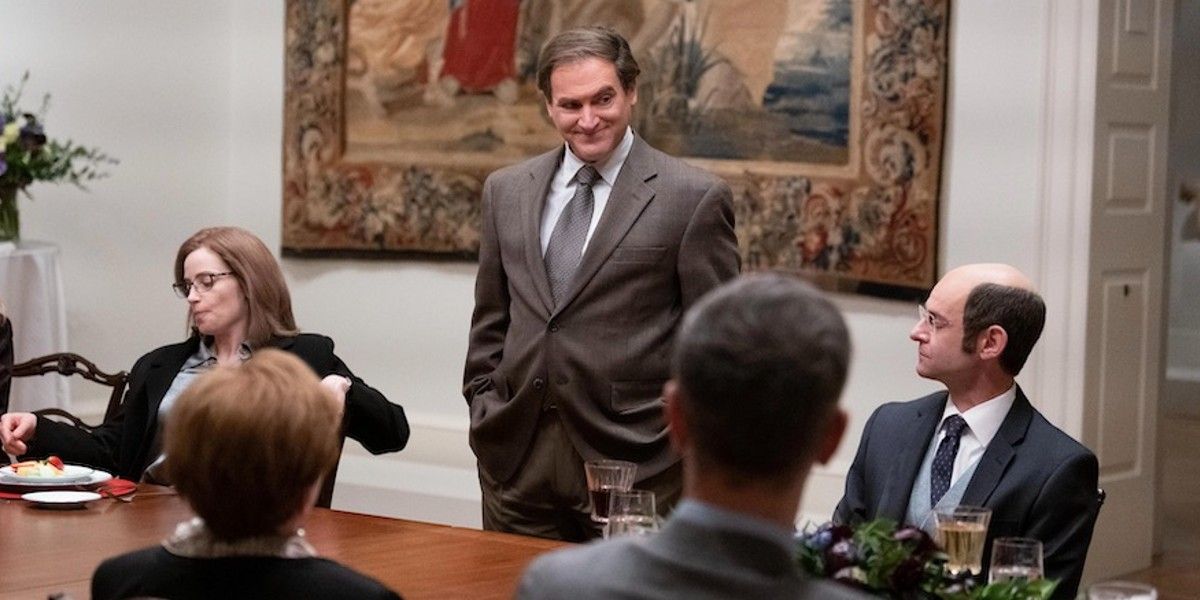By now, a fair number of people have heard of Purdue Pharma and the Sackler Family, and a much larger share of the population is aware of what's commonly referred to as the opioid epidemic. But, as was the case with topics like the 2008 financial crisis and the Catholic Church's abuse scandal, it took a long time for the whole story to come into focus. Traditional news sources told those stories well but struggled to command the public's attention. A certain kind of movie emerged to fill the void. Films like The Big Short and Spotlight took complex and unpleasant subject matter and made it considerably more digestible to general audiences. Now Dopesick -- an eight-part limited series on Hulu -- does the same for the story behind OxyContin.
The Big Short, Spotlight, and even Erin Brokovich before them, pioneered narrative techniques that helped viewers connect with the subject matter in a way that both piqued their curiosity and pulled at their heartstrings, which in turn helped elevate serious, consequential issues. Dopesick uses those same techniques; it chops up its timeline and tells the story from multiple perspectives, the way good true crime does. And, as a limited series instead of a movie, it has the luxury of eight full hours to explain its finer points. The viewer cringes at the Sacklers' bald-faced corruption behind closed doors and feels as though they are in on solving the mystery as lawyers and DEA agents unravel their misdeeds. It's the victims' points of view, however, that will make them care. Early on in the pilot episode, Dr. Finnix (Michael Keaton, who also starred in Spotlight and has some experience in the truth-to-power genre) says he can't believe how many of them are dead now. The grim question looms: which characters is he talking about?
The series gets its title from the multi-award-winning 2018 book of the same name by Beth Macy. That Dopesick is a work of non-fiction. Hulu's adaption is something of a hybrid. Many players, such as Purdue Pharma President, Richard Sackler (Michael Stuhlbarg) and US Attorney Rick Mountcastle (Peter Sarsgaard), are actual people, but most of those ground-level victims are composites. Considering the immense tragedy their real-life counterparts have been through, that's just as well. Much of the action takes place in rural Virginian coal country circa 1996 (Appalachia really was identified as an ideal place to start pitching the pills). A teenage girl named Betsy (Kaitlyn Dever) tries to prove her toughness in the mines, and hopes to eventually make enough money to move out of her economically depressed and regressive post-industrial town. When she sustains a back injury but wants to keep working, her almost too-good-to-be-true local doctor has just the thing to alleviate her unbearable pain. A kindly, eager salesman named Billy (Will Poulter) just happened to visit him and leave him with a free sample of a brand new slow-release opioid.
To his credit, Dr. Finnix is skeptical from the start. But when Billy presents what appears to be blind third-party research that claims fewer than one percent of users got addicted, the good doctor takes him at his word. The larger problem is, the Food and Drug administration took Purdue Pharma at their word, too, and okayed the product for the market with little-to-no research and a misleading label. That means within the span of three short years, thousands of doctors, pharmacists, sales reps and some government agencies are all complicit in what Rosario Dawson's DEA Agent Myer calls a legal cartel.
Like recent hit exposé, Amazon's LuLaRich, Dopesick makes it painfully clear how each party got involved in the crooked scheme. Richard Sackler, the nephew of company founder Arthur, is so ambitious and self-aggrandizing, he almost believes in his noble mission to end the world of pain. The young, attractive and savvy sales reps are incentivized with bonuses and tropical vacations. The doctors are not only bribed with free weekend conferences and lobster for dinner but they are also hired out as guest speakers to promote and lend credibility to the drug. And the patients get a supposedly non-addictive wonder drug that does, at first, make them feel better. There's a lot of blame to go around, but the original sin was committed at the very top. Yet, as it is with MLMs, the money flowed up as the devastation rained down.
We see and hear about the overwhelming number of people who are waiting in long lines at sham pain clinics, losing livelihoods, abandoning children and dying of overdoses. It's sobering to think about, but it has the same effect as reading about the opioid epidemic in newspapers. What's enlightening is the way the series connects the dots, and zooms in on each of those dots, to illustrate the exact nature of the deception and OxyContin's resulting and crushing omnipresence. None of the characters can avoid OxyContin, not in their personal or professional lives, and when attorneys Mountcastle and Ramsayer are granted access to internal documents, the paperwork fills a fleet of trucks. In short, the Sacklers wittingly unleashed a huge problem.
Even casual news-consuming viewers will likely have some sense of the scale of that problem prior to watching Dopesick, but to see it all put together is jaw-dropping and rage-inducing (though it's also entirely believable). So is the torment experienced by an already tormented pool of patients who were scapegoated as the cause of the problem for far too long. A limited series -- even one as well-made and well-cast as this one -- can't begin to right the wrongs perpetrated by Purdue Pharma, but they can educate as they entertain, so the public is on alert next time. Because if films like The Big Short and series like Dopesick have taught us anything, it's that there will be a next time.



